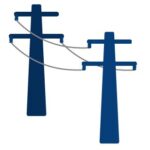Researching Your Local Solar Requirements
Researching Your Local Requirements
Installing your own solar system requires additional due diligence to make sure that your power system is safe, effective, and maximizing your investment. The first step of this process is finding out about your local requirements for solar installations. These generally fall into three categories:
- Utility Requirements
- City/County/State Regulations
- Permitting & Inspection Requirements
Knowing where to look is all well and good, but what exactly should you be looking for?
Here are some key things to find out, broken down by category.
Utility Requirements:
• Do they require approval before installing your system?
• How do they compensate excess production?
• Is there a utility inspection process before the system can be activated?
• Will your base charge or rate schedule change as a solar customer?
• Are there any additional fees associated with connecting to the grid?
 Permitting & Inspection Requirements:
Permitting & Inspection Requirements:
• What kind of permits are required?
• Who will be issuing the permits?
• What does the application process look like?
• Do they require an inspection before the system can be activated?
• What fees are associated with permitting?
City/County/State Regulations:
• What are local fire code regulations that may affect my design?
• Are there any local regulations or rules that would impact where the solar can be installed?
• Do you need HOA or other non-governmental approval?
• Are there any local requirements that would impact the placement of your ancillary equipment?
Keep track of your findings as you research your DIY solar project requirements. We recommend keeping a running document (either digital or hard copy) of information that you will need access to later. You can organize it using these categories or your own system – whatever will help you remember and organize the information in a way that will work for you. Having easy access to this information will help when you start working with your DIY support team to choose products and design your system.
